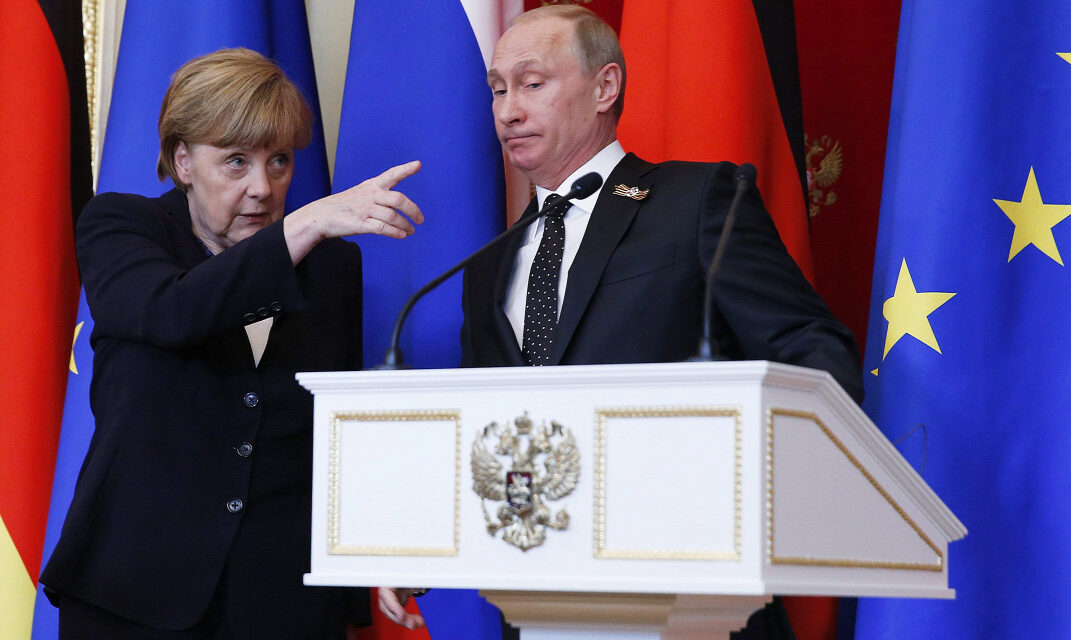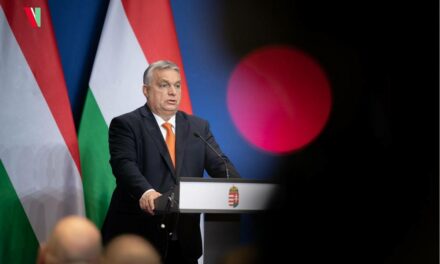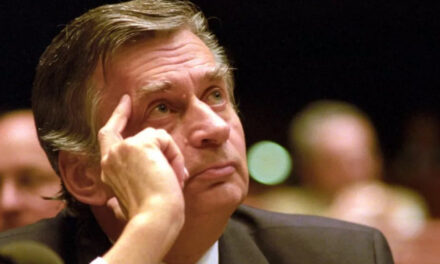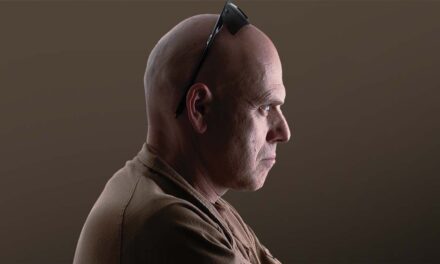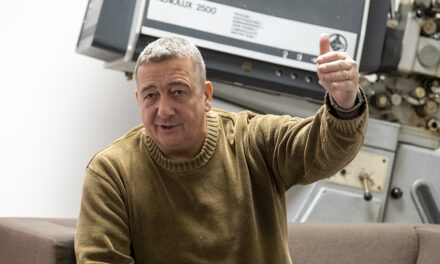As already reported by several Hungarian media, Angela Merkel gave an interview to the German newspaper Die Welt on December 7, in which she literally said the following: "The 2014 Minsk agreement was an attempt to buy time for Ukraine. Ukraine used this time to strengthen itself, as can be seen today. The Ukraine of 2014-2015 and the Ukraine of today are not the same. It was clear to everyone that the conflict was only suspended and the problem was not resolved, but this was precisely what gave Ukraine invaluable time.” In other words, Angela Merkel essentially said that the Russians were deliberately deceived. This was not the first case, let us recall an older story, the one when it was about the reunification of Germany.
German reunification was discussed in 1990 between US Secretary of State James Baker, President of the Soviet Union Mikhail Gorbachev and Soviet Foreign Minister Eduard Sevardnadze. Declassified documents relating to these discussions clearly demonstrate that US Secretary of State James Baker clearly promised Gorbachev that if a united Germany could remain a member of NATO, NATO would not expand an inch eastward. Of the thirty documents published by the American National Security Archive in 2017, the clause "not one inch" appears in three, the fifth, the sixth and the eighth. transcript of a conversation in which Baker tells Gorbachev:
“And the last point. NATO is the mechanism for ensuring the presence of the United States in Europe. If NATO is dismantled, there will be no such mechanism in Europe. We understand that guarantees are important not only for the Soviet Union, but also for other European countries, that if the United States maintains its presence in Germany within the framework of NATO, then not a single centimeter of NATO's current military jurisdiction will expand eastward. We believe that consultations and discussions within the framework of the "two + four" mechanism should guarantee that the unification of Germany does not lead to the expansion of NATO's military organization to the east."
Now, during the escalation of the Russian-Ukrainian, or more precisely, Ukrainian-mediated NATO-Russian war, it would be worthwhile to process all thirty documents, but for the sake of interest, let's quote only the document bearing serial number 30. This document is the record of a meeting between the commanders of the Soviet armed forces and NATO leaders at NATO headquarters in Brussels on July 1, 1991. According to the minutes, NATO Secretary General Manfred Wörner emphasized that he and the NATO Council are against NATO expansion (13 out of 16 NATO member states support this position). In the near future, in his meeting with L. Walesa and the Romanian leader I. Iliescu, he will oppose Poland and Romania joining NATO, as he previously stated this to Hungary and Czechoslovakia. The Soviet Union must not be allowed to be isolated from the European community.
Incidentally, Wörner visited Hungary half a year earlier, on November 22, 1990, where, according to contemporary photographs and newspapers, he met Prime Minister József Antall, Foreign Minister Géza Jeszenszky and even Gyula Horn, the leader of the opposition at the time. Apparently, they were the ones whom Wörner wanted to talk out of NATO membership, as we know, with little success. However, one of the main demands of the 1956 war of independence was a neutral, independent Hungary, and when the opportunity arose, the Hungarian leaders were determined to join a new military block just by getting rid of the old one. One of the main proponents of NATO membership was Gyula Horn, who participated in the suppression of the war of independence in 1956. It seems that our regime-changing politicians could not live without a "master", and a new one had to be quickly found to replace the old one.
But back to Merkel. We know from Imre Pozsgay that gratitude is not a political category, this proposition was also proved by Angela Merkel, who during her political career was already a Marxist propagandist of the youth organization of the German Communist Party (sorry: German Socialist Unity Party), the deputy spokesperson of the last prime minister of the GDR, and then the reunification joined the Christian Democratic Party of Helmut Kohl, who was currently in office. Kohl supported the "little girl" and Merkel soon became a minister and vice president of the CDU. In November 1999, a party financing scandal erupted, nothing special, just usual in bourgeois democracies, from which the CDU was not exempt either. Kohl refused to reveal who the money came from, and taking advantage of the resulting scandal, Merkel ousted him from the party's leadership and elected herself president of the CDU. This is what happened later, when in 2005 the CDU came back to power as the chancellor of Germany.
Among Merkel's reversals, we could also mention her relationship with nuclear power plants, which she supported as chancellor in 2010, and even planned to extend the life of nuclear power plants, but then came the Fukushima tsunami and the subsequent nuclear power plant accident. At that time, hundreds of thousands protested against nuclear power plants in Germany's major cities, and in a regional election the Greens were able to increase their popularity by a few percentage points to around eight percent. This was enough for Merkel to declare that all of the country's nuclear power plants will be shut down by 2022.
Merkel was also a big supporter of the Energiewende (replacing traditional power plants with wind and solar power plants), and we can even thank her for the European Union's irrational climate policy, the stupidity of which was already obvious, but it became even more obvious with the Russian sanctions. And then we haven't even mentioned Merkel's immigration policy.
But let's leave Merkel alone, and history will judge her. Now here is the new chancellor, Olaf Scholz, who has published an authoritative paper in Foreign Affairs, one of the mouthpieces of American foreign policy, titled Global Era Shift, How to Avoid a New Cold War in a Multipolar Era? with subtitle. The study is quite long and obviously deserves to be dealt with more thoroughly, here I would like to mention only three small details. One is that when he writes about the reunification of Germany, he mentions that in November 1989, brave East German youth brought down the Berlin Wall, but he forgets to mention that this was preceded by the opening of the western border by the Hungarians to the East Germans (which Merkel also mentioned on a previous anniversary thanked him).
According to Scholz, the unification of Germany was due to "foreseeing politicians and the support of Western and Eastern partners", it is not mentioned here that the condition of the Soviet withdrawal was that NATO did not expand to the East, and he even condemns Russia for the deterioration of East-West relations and the outbreak of war . Regarding Minsk, for example, he says that "revisionist Russia has made it impossible for diplomacy to succeed." Compare it to Merkel's statement, at least they would harmonize what they say!
One could say that politics has always been like this, with politicians always looking for popularity or greater political gain. But on the one hand, what is happening now is irrational from every point of view and literally hurts our skin, and on the other hand, a politician does not have to be out of character. I still remember rational and credible politicians, such as Konrad Adenauer, Willy Brandt and Helmut Kohl. They would certainly feel bad among their colleagues today.
Author: Károly Lóránt, economist, advisor to the National Forum, member of the C12 expert group
Source: Magyar Hírlap
Cover photo: German Chancellor Angela Merkel and Russian President Vladimir Putin / Photo: Sergey Ilnytskyi / MTI/EPA

